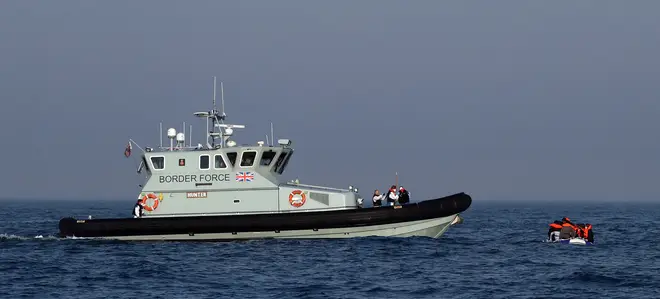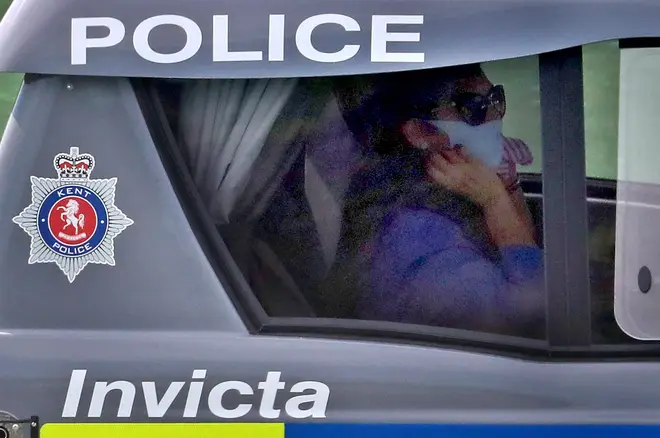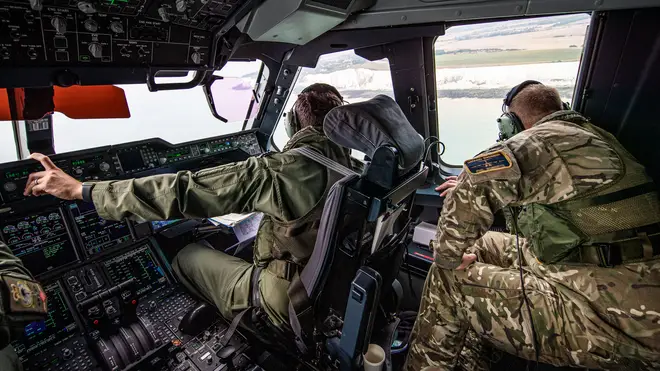
Oli Dugmore 4am - 7am
11 August 2020, 06:49

The UK and France are set to hold talks on Tuesday as Ministers attempt to stem a fresh upsurge in migrants crossing the Channel in small boats.
Immigration minister Chris Philp is to hold talks with French counterparts in Paris after a weekend of record migrant numbers attempting the perilous Channel crossing.
Ministers are reportedly considering using Border Force cutters to stop boats from reaching Britain’s territorial waters.
More than 4,000 migrants have made it so far this year after completing the voyage across the world's busiest shipping lane, with at least 597 arriving between Thursday and Sunday.
Yesterday Home Secretary Priti Patel visited the Kent coast and is understood to have boarded a police vessel and met with Border Force officials as part of measures to address the issue.
Ms Patel said the UK authorities now needed to work with the French to make the route "unviable".
"The number of illegal small boat crossings we have seen recently is totally unacceptable," she said.
"Our operational partners are dealing with complex challenges associated with them and collectively with the French we need make this route unviable.
"Across Government we are absolutely committed to shutting down this route and we will bring down the criminal gangs that facilitate these illegal crossings."
Boris Johnson's Government has come under increasing pressure from its own MPs after good weather and calm seas saw hundreds take to the water in an attempt to reach British shores.

On Monday the Prime Minister branded migrants crossing the Channel a "very bad and stupid and dangerous and criminal thing to do" as he hinted at changing laws to tackle the crisis.
Officials said that they wanted to build on the joint work already under way, exploring the options for tougher action in France, including stronger enforcement measures, interceptions at sea and the direct return of boats.

However, the Government was facing criticism from French politicians after the Home Office formally requested the assistance of the Royal Navy to deal with the problem.
Calais MP Pierre-Henri Dumont said it was a "political measure" intended to show ministers were taking action but warned that it "won't change anything".
Meanwhile Downing Street has suggested leaving the EU would allow the UK to draw up a new framework for dealing with migrants, ending the "inflexible and rigid" requirements to ensure asylum applications are examined and considered.
Downing Street said: “The Navy is well resourced and stands ready to help in any circumstances deemed appropriate. It’s up to Border Force to take whatever action they deem appropriate and they will always comply with maritime law.”

UK vows action after record-high migrant sea crossings
In further move to show ministers were serious about dealing with the issue, an RAF Atlas A400M surveillance aircraft was deployed over the Channel on Monday with spotters on board to support the Border Force operation.
The latest outcry follows a similar storm last summer when another upsurge in crossings led Mr Johnson to warn Britain was prepared to start sending back those migrants who did make it across.
Ms Patel met the then French interior minister Christophe Castaner in Paris on August 29 last year when they agreed to step up resources to intercept and stop the wave of crossings.
There were suggestions from the French side that the UK could put more money into efforts to tackle the problem, reinforcing its patrols and improving the effectiveness of the three Border Force cutters stationed in the Channel.
It followed an earlier plan drawn up under former home secretary Sajid Javid, including a £6 million investment in security equipment, CCTV coverage of beaches and ports and a mutual commitment to return migrants under international and domestic laws.
In the latest attempt to address the issue, Ms Patel last month hailed a "new operational approach" after reaching an agreement with newly-appointed French interior minister Gerald Darmanin to create a Franco-British intelligence cell.
Mr Philp also discussed the problem with the French deputy ambassador Francois Revardeaux in a meeting last week.